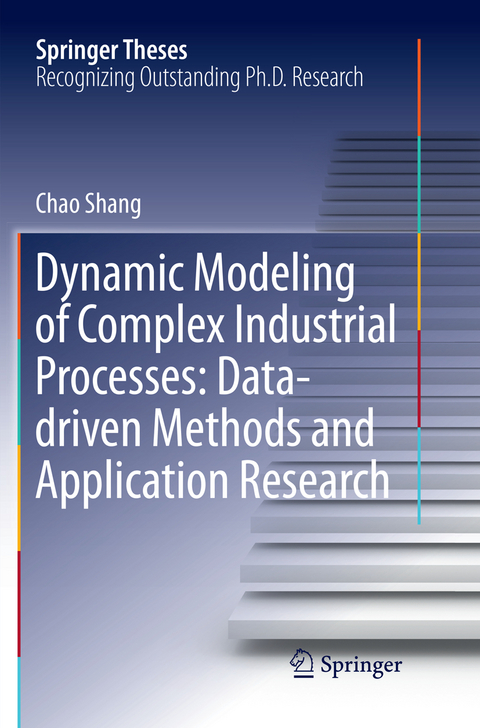
Dynamic Modeling of Complex Industrial Processes: Data-driven Methods and Application Research
Seiten
2019
|
Softcover reprint of the original 1st ed. 2018
Springer Verlag, Singapore
978-981-13-3889-2 (ISBN)
Springer Verlag, Singapore
978-981-13-3889-2 (ISBN)
This thesis develops a systematic, data-based dynamic modeling framework for industrial processes in keeping with the slowness principle. Using said framework as a point of departure, it then proposes novel strategies for dealing with control monitoring and quality prediction problems in industrial production contexts.
The thesis reveals the slowly varying nature of industrial production processes under feedback control, and integrates it with process data analytics to offer powerful prior knowledge that gives rise to statistical methods tailored to industrial data. It addresses several issues of immediate interest in industrial practice, including process monitoring, control performance assessment and diagnosis, monitoring system design, and product quality prediction. In particular, it proposes a holistic and pragmatic design framework for industrial monitoring systems, which delivers effective elimination of false alarms, as well as intelligent self-running by fully utilizing the information underlying the data. One of the strengths of this thesis is its integration of insights from statistics, machine learning, control theory and engineering to provide a new scheme for industrial process modeling in the era of big data.
The thesis reveals the slowly varying nature of industrial production processes under feedback control, and integrates it with process data analytics to offer powerful prior knowledge that gives rise to statistical methods tailored to industrial data. It addresses several issues of immediate interest in industrial practice, including process monitoring, control performance assessment and diagnosis, monitoring system design, and product quality prediction. In particular, it proposes a holistic and pragmatic design framework for industrial monitoring systems, which delivers effective elimination of false alarms, as well as intelligent self-running by fully utilizing the information underlying the data. One of the strengths of this thesis is its integration of insights from statistics, machine learning, control theory and engineering to provide a new scheme for industrial process modeling in the era of big data.
Introduction.- Concurrent monitoring of steady state and process dynamics with SFA.- Online monitoring and diagnosis of control performance with SFA and contribution plots.- Recursive SFA algorithm and adaptive monitoring system design.- Probabilistic SFR model and its applications in dynamic quality prediction.- Improved DPLS model with temporal smoothness and its applications in dynamic quality prediction.- Nonlinear and dynamic soft sensing model based on Bayesian framework.- Summary and open problems.
| Erscheinungsdatum | 20.03.2019 |
|---|---|
| Reihe/Serie | Springer Theses |
| Zusatzinfo | 46 Illustrations, color; 13 Illustrations, black and white; XVIII, 143 p. 59 illus., 46 illus. in color. |
| Verlagsort | Singapore |
| Sprache | englisch |
| Maße | 155 x 235 mm |
| Themenwelt | Mathematik / Informatik ► Mathematik |
| Naturwissenschaften ► Physik / Astronomie | |
| Technik ► Bauwesen | |
| Technik ► Elektrotechnik / Energietechnik | |
| Technik ► Maschinenbau | |
| Schlagworte | Data-driven Methods • Fault Diagnosis • Industrial Process Control • Process Data Analytics • process monitoring • Soft Sensing |
| ISBN-10 | 981-13-3889-2 / 9811338892 |
| ISBN-13 | 978-981-13-3889-2 / 9789811338892 |
| Zustand | Neuware |
| Haben Sie eine Frage zum Produkt? |
Mehr entdecken
aus dem Bereich
aus dem Bereich
Von Logik und Mengenlehre bis Zahlen, Algebra, Graphen und …
Buch | Softcover (2024)
De Gruyter Oldenbourg (Verlag)
CHF 104,90
Analysis und Lineare Algebra mit Querverbindungen
Buch | Hardcover (2022)
Springer Spektrum (Verlag)
CHF 89,95
Versteckte Beiträge, die die Welt verändert haben
Buch | Hardcover (2023)
Springer (Verlag)
CHF 41,95


